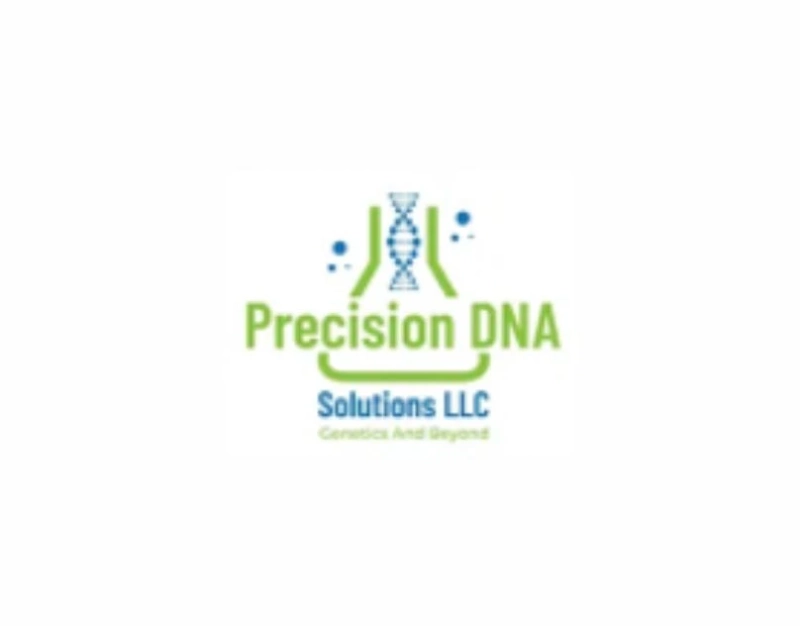DNA testing has become an invaluable tool in the modern era, impacting fields such as medicine, genealogy, forensics, and even personal wellness. At Precision DNA Solutions, we understand the profound impact that accurate and reliable DNA testing can have on individuals and society as a whole. This comprehensive guide delves into the various applications of DNA testing, the science behind it, and how Precision DNA Solutions stands out in this rapidly evolving field.
What is DNA Testing?
DNA, or deoxyribonucleic acid, is the hereditary material in humans and almost all other organisms. DNA testing involves analyzing an individual's genetic code to provide insights i
Importance of DNA Testing
nto their ancestry, health, and identity. Each person's DNA is unique (except for identical twins), making it a powerful tool for various applications.
Applications of DNA Testing
Medical Diagnostics: One of the most significant advancements in healthcare is the use of DNA testing for medical diagnostics. Genetic testing can identify predispositions to certain diseases, allowing for early intervention and personalized treatment plans. For example, BRCA1 and BRCA2 gene mutations are linked to an increased risk of breast and ovarian cancer. Early detection through DNA testing can significantly improve outcomes by enabling proactive monitoring and preventive measures. Ancestry and Genealogy: Ancestry DNA testing has gained immense popularity as people seek to uncover their family history and heritage. By comparing your DNA with genetic data from different populations worldwide, ancestry tests can reveal your ethnic origins and help you connect with long-lost relatives. This fascinating exploration of one's roots can provide a deeper understanding of cultural and historical backgrounds. Forensics: Forensic DNA testing plays a critical role in the criminal justice system. It is used to identify suspects, exonerate the innocent, and solve cold cases. DNA evidence can be collected from various sources, such as blood, hair, skin cells, and saliva, making it a reliable method for linking individuals to crime scenes or victims. Paternity and Relationship Testing: Paternity testing is a common use of DNA analysis, providing conclusive evidence of biological relationships. Whether for legal, personal, or medical reasons, paternity tests can establish father-child relationships with a high degree of certainty. Similarly, sibling, grandparent, and other relationship tests are available to confirm familial connections. Personal Wellness: DNA testing is also making waves in the wellness industry. By analyzing genetic markers, companies can provide personalized health and fitness recommendations. These insights can help individuals optimize their diet, exercise routines, and lifestyle choices based on their unique genetic makeup. Pharmacogenomics: Pharmacogenomics is the study of how genes affect a person’s response to drugs. This field of DNA testing aims to develop effective, safe medications and doses tailored to a person’s genetic makeup. Understanding genetic variations can help predict which medications and dosages will be most effective and least likely to cause adverse reactions.The Science Behind DNA Testing
DNA is composed of two long strands forming a double helix. These strands are made up of four chemical bases: adenine (A), thymine (T), cytosine (C), and guanine (G). The sequence of these bases encodes the genetic instructions for building and maintaining an organism.
DNA testing typically involves collecting a sample, such as saliva or a cheek swab, from the individual. The DNA is then extracted and analyzed in a laboratory. Various techniques, such as polymerase chain reaction (PCR) and next-generation sequencing (NGS), are used to amplify and read specific regions of the genome. The resulting data is compared to reference databases to interpret the findings.
Precision DNA Solutions: Why Choose Us?
At Precision DNA Solutions, we are committed to providing accurate, reliable, and confidential DNA testing services. Here’s what sets us apart:
Expertise and Experience: Our team of scientists and technicians has extensive experience in the field of genetics and molecular biology. We stay at the forefront of technological advancements to ensure that our testing methods are cutting-edge and adhere to the highest standards. Comprehensive Testing Services: We offer a wide range of DNA testing services, including medical diagnostics, ancestry testing, forensic analysis, and paternity testing. Our comprehensive approach ensures that we can meet the diverse needs of our clients. State-of-the-Art Laboratory: Our laboratory is equipped with state-of-the-art technology, enabling us to conduct precise and accurate DNA analyses. We follow rigorous quality control measures to guarantee the reliability of our results. Confidentiality and Privacy: We understand the sensitive nature of DNA testing and prioritize the confidentiality and privacy of our clients. All samples and results are handled with the utmost care to ensure that your personal information remains secure. Personalized Customer Support: At Precision DNA Solutions, we believe in providing personalized support to our clients. Our knowledgeable customer service team is available to answer your questions, guide you through the testing process, and help you understand your results.The Future of DNA Testing
The field of DNA testing is rapidly evolving, with new discoveries and technological advancements continually expanding its applications. Here are a few trends and future directions:
Precision Medicine: The integration of DNA testing into precision medicine is poised to revolutionize healthcare. By tailoring medical treatments to an individual’s genetic profile, precision medicine aims to improve treatment efficacy and reduce adverse effects. Expanded Ancestry Insights: As genetic databases grow and more populations are represented, ancestry tests will become even more accurate and detailed. This will provide individuals with a richer understanding of their heritage. Genetic Editing: Technologies like CRISPR-Cas9 are opening up possibilities for genetic editing. While this raises ethical and regulatory questions, it also holds the potential to correct genetic disorders and improve human health. Consumer Genomics: The accessibility and affordability of DNA testing will continue to increase, making it a routine part of personal health and wellness management. Consumer genomics will empower individuals with valuable insights into their genetic makeup. Environmental DNA (eDNA): A novel application of DNA testing is the use of environmental DNA (eDNA) to monitor biodiversity and detect the presence of specific organisms in an environment. This method is particularly useful in conservation biology and ecological studies.DNA Testing: Ethical Considerations
While DNA testing offers numerous benefits, it also raises ethical considerations that need to be addressed:
Privacy and Consent: The collection and storage of genetic information must be handled with strict confidentiality to protect individuals' privacy. Informed consent is crucial, ensuring that individuals understand the implications of DNA testing and agree to how their data will be used. Genetic Discrimination: There is a risk of genetic discrimination in employment and insurance based on genetic information. Legislation, such as the Genetic Information Nondiscrimination Act (GINA) in the United States, seeks to prevent such discrimination. Data Security: The security of genetic data is paramount to prevent unauthorized access and misuse. Robust cybersecurity measures are essential to safeguard this sensitive information. Ethical Use of Genetic Editing: While genetic editing holds promise for correcting genetic disorders, it also raises ethical concerns regarding its use, particularly in human embryos. Ethical guidelines and regulatory frameworks are needed to govern the application of genetic editing technologies.Conclusion
DNA testing is a powerful tool that offers a wealth of information about our health, heritage, and identity. At Precision DNA Solutions, we are dedicated to providing top-notch DNA testing services that you can trust. Whether you are seeking medical insights, exploring your ancestry, or need forensic analysis, our expert team and advanced technology are here to help. Embrace the future of genetic science with Precision DNA Solutions, where precision meets trust.
By choosing Precision DNA Solutions, you are opting for a partner committed to scientific excellence, customer care, and ethical standards. Our comprehensive services and advanced technology ensure that you receive the most accurate and reliable DNA testing available. As the field of genetic testing continues to evolve, we remain at the forefront, ready to provide you with the insights and support you need to make informed decisions about your health, heritage, and personal relationships.



